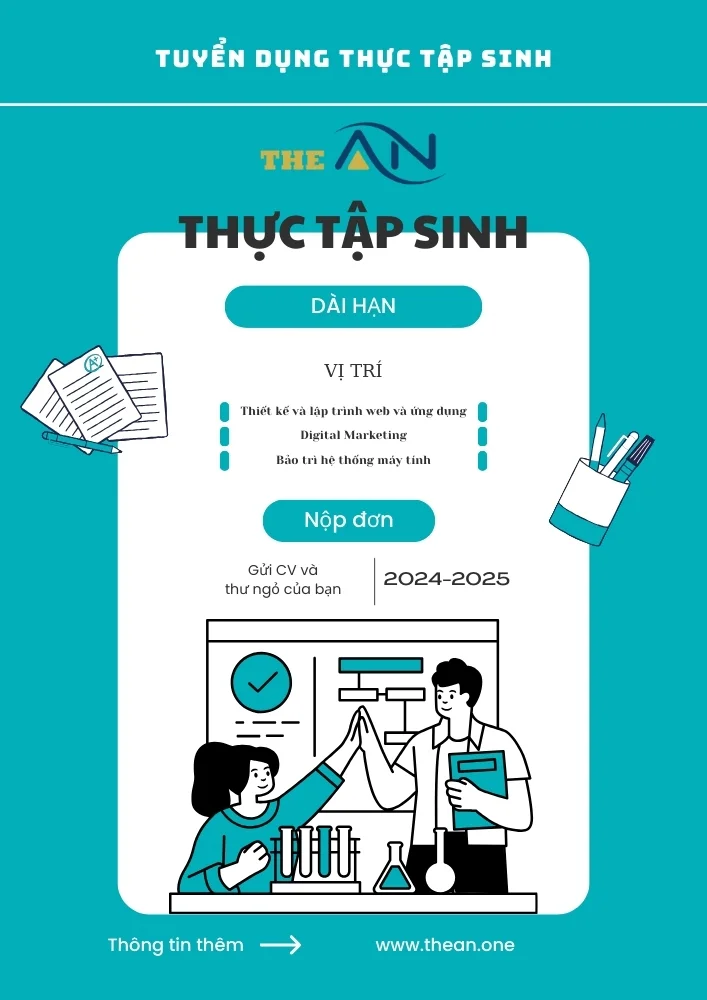Complex Sentences – Definition, Structure and Examples

Complex Sentences are an important component of correct English grammar after completing compound sentences one should start with complex sentences. When compared to simple sentences, they enable us to transmit a greater amount of information and express our ideas in a more nuanced manner. In this reference, we will investigate what a complicated sentence is, its structure, types, examples, how to build one, and typical mistakes, and discover how it functions when it comes to grammar.
Table of Content
- What is a Complex sentence?
- Examples of Complex sentence
- How to Identify a Complex Sentence?
- Structure of Complex Sentence
- Complex Sentences with a Subordinating Conjunction
- Complex Vs Compound Sentences
- Conclusion – Complex sentence
- Practice questions on Complex sentence
- FAQs on Complex Sentences
What is a Complex sentence?
A sentence is considered to be complicated when it has at least one independent clause, sometimes referred to as the main clause, along with one or more dependent clauses, often referred to as subordinate clauses. A comma is used to connect the clauses in a sentence whenever the dependent clause comes first in the sentence. In other types of complicated sentences, the independent and dependent clauses are connected by subordinating conjunctions such as “when,” “how,” and “if.”
Examples of Complex sentence
- Because I worked hard, I got the job.
- Although it was too hot outside, he was wearing a coat.
- When she arrived at the airport, the plane had already taken off.
- Most people will buy the car that has the highest gas mileage.
- While I enjoy cricket, hockey is my favorite sport.
- Although Jane was known to be smart, she failed to pass her examinations.
- Whenever it rains, I like to drive my car across the town.
- A party is not an ideal option because the neighbors would oppose it.
- We have been very happy since he left.
- The cat jumped on the tree while I was sitting in the park.
- Helen is very sick today and we will make her see the doctor before she gets worse.
How to Identify a Complex Sentence?
Although it may be challenging to comprehend a conditional statement, in general, complicated sentences adhere to straightforward grammatical principles. If you employ the appropriate subordinating conjunction in a complicated sentence, the only thing you need to worry about is the commas.
- The clause that comes first in a sentence determines whether or not a comma should be used:
- If the dependent clause comes first in the sentence, a comma needs to go just before the independent clause.
- In the event that the independent clause comes first, there is no requirement for a comma to be used.
Structure of Complex Sentence
- A complicated sentence is one that consists of at least one independent phrase and one or more dependent clauses, all of which are connected to one another by the use of subordinating conjunctions, relative pronouns, as well as punctuation.
- It is possible to place the independent clause at the beginning of the sentence, in the middle of the sentence, or perhaps at the end of the sentence. Complex sentences do not adhere to any predetermined pattern because of this reason.
- Complex sentences are constructed by focusing the sentence on the independent clause, often known as the “main clause,” and then adding dependent clauses to the phrase in order to add supplementary information that extends on the information provided by the main clause.
Complex Sentences with a Subordinating Conjunction
- A complicated sentence is one that consists of at least one independent phrase and one or more dependent clauses, all of which are connected to one another by the use of subordinating conjunctions, relative pronouns, as well as punctuation.
- It is possible to place the independent clause at the beginning of the sentence, in the middle of the sentence, or perhaps at the end of the sentence. Complex sentences do not adhere to any predetermined pattern because of this reason.
- Complex sentences are constructed by focusing the sentence on the independent clause, often known as the “main clause,” and then adding dependent clauses to the phrase in order to add supplementary information that extends on the information provided by the main clause.
Complex Vs Compound Sentences
| Complex Sentences | Compound Sentences |
|---|---|
| Consist of an independent clause and at least one dependent clause | Consist of two or more independent clauses |
| The dependent clause relies on the main clause for meaning and cannot stand alone as a complete sentence | Each independent clause can function as a standalone sentence |
| Express relationships, conditions, cause and effect, or contrast within a single sentence | Combine related thoughts or ideas within a single sentence |
| Utilize subordinate conjunctions (e.g., because, although, while) or relative pronouns (e.g., who, which, that) to connect the clauses | Use coordinating conjunctions (e.g., and, but, or) or punctuation marks (e.g., semicolon, colon) to join the clauses |
| Provide an opportunity to convey complex thoughts and ideas, allowing for more detailed and sophisticated writing | Offer a way to join separate but related ideas or to create a sense of balance and variety in writing |
| Enhance the coherence and depth of the text by establishing logical connections and subordination | Maintain clarity and flow by grouping related information together or presenting contrasting ideas |
| Enable the writer to develop complex arguments, narratives, or explanations | Allow for the combination of shorter, independent statements to create a concise and cohesive text |
Conclusion – Complex sentence
Complex sentences have one independent clause with at least one dependent clause. These kinds of statements can be seen frequently in everyday discussions as well as in written work. To properly employ these sentences, one needs to have a comprehensive understanding of the principles of grammar.
Practice questions on Complex sentence
Please fill in the blanks with an appropriate subordinator for each of these statements.
- We are going to the bank _______ mother needs some money.
- She prepared lunch _________ I got home.
- ________ It’s raining, and he is going for a steal in the park.
- ________ he finishes the homework soon, he will fail the exam.
- Jasmine decided to trust Tom______ he was an honest man.
- _______ we went to college, he decided to understand the situation.
- Rachel decided to leave Jerry_______ he was too busy with his job.
- Don bought a new coat __________ he had received the same as a gift last month.
- Jimmy claims that there will be bad outcomes_____ he doesn’t finish the given job.
- Joey will have finished the entire month’s report____ the time you receive the letter.
Answers
- because/since/as
- after / when / as soon as
- although / even though / though
- unless
- because/since/as
- before / when
- because/since/as
- although / even though / though
- if/in the case that
- by
FAQs on Complex Sentences
An independent clause is the building block of a complex sentence. An independent clause is a statement that may be read as a complete thought on its own. A complex sentence consists of an independent clause and one or more dependent clauses.
There are four different sorts of sentences that may be classified depending on their structure, and one of those is the complex sentence. (simple, complex, compound, and compound-complex). Only complex sentences as well as complex-compound sentences have dependent clauses; simple sentences do not have them. Their defining characteristic is that they contain a dependent clause.
A complex sentence will typically have one main clause (also known as an independent clause) and at least one dependent clause (also known as a subordinate clause). A complicated sentence is distinct from the other sorts of sentences since it must have both introductory and independent clauses. Given that compound sentences always contain at least one main clause and one subordinate clause, it follows that the clauses cannot be equal.
- Don’t leave the hospital until all the patients in the ward are checked.
- While playing cricket, the ball thrown by one of the team’s players hit the girl crossing the street.
- Johnny was very sick today and he will not go to school, he needs rest.
- Even after all these years, whenever I hear her voice, I get butterflies in my stomach the same as the first day.
One independent clause, one dependent clause, as well as one sentence that uses a subordinating conjunction make up a complex sentence. There are two different approaches to constructing complicated sentences, which are as follows:
[subordinating conjunction] + [dependent clause] + comma + [independent clause].
A complex sentence is a sentence that contains one independent clause (a complete thought) and at least one dependent clause (an incomplete thought). Dependent clauses rely on the independent clause to make sense. Here are five examples of complex sentences:
1. Although it was raining, they decided to go for a walk.
– Independent Clause: “They decided to go for a walk.”
– Dependent Clause: “Although it was raining.”
2. She studied hard because she wanted to ace the exam.
– Independent Clause: “She studied hard.”
– Dependent Clause: “because she wanted to ace the exam.”
3. After the movie ended, they went out for ice cream.
– Independent Clause: “They went out for ice cream.”
– Dependent Clause: “After the movie ended.”
4. Since he arrived early, he had time to relax.
– Independent Clause: “He had time to relax.”
– Dependent Clause: “Since he arrived early.”
5. Even though it was late, he continued working on the project.
– Independent Clause: “He continued working on the project.”
– Dependent Clause: “Even though it was late.”
In each of these examples, the dependent clauses provide additional information or context to the independent clauses, making the sentences more complex and conveying a more detailed meaning.
1. Subordinating Conjunctions: Words like “although,” “because,” “if,” and “when” introduce dependent clauses.
2. Relative Pronouns: Words like “who,” “which,” and “that” introduce clauses providing additional information about a noun.
3. Relative Adverbs: “Where,” “when,” and “why” introduce dependent clauses related to location or time.
4. Time Expressions: Words like “after,” “before,” and “since” introduce clauses related to timing.
5. Conditional Words: “If,” “unless,” and “provided that” introduce conditional clauses.
6. Comparison Words: “As,” “than,” and “as if” introduce clauses for comparisons.
7. Concessive Words: “Although,” “though,” and “while” introduce clauses indicating concessions or contrasts.
These words help create complex sentences by connecting ideas and providing context.
Simple Sentences:
– A simple sentence contains a single independent clause, which is a complete thought that can stand alone as a sentence.
– Simple sentences are often short and straightforward.
– They typically consist of a subject and a verb (predicate).
– Example: “She sings.”
Complex Sentences:
– A complex sentence contains one independent clause and at least one dependent clause.
– Dependent clauses are incomplete thoughts and cannot stand alone as sentences; they rely on the independent clause.
– Complex sentences are more detailed and can convey more information.
– Example: “Although it was raining, she decided to go for a walk.”
Independent Clauses:
– An independent clause, also known as a main clause, is a group of words that forms a complete thought and can stand alone as a sentence.
– It contains a subject and a predicate (verb) and expresses a complete idea.
– Examples: “She went to the store.” or “He loves to read books.”
Dependent Clauses:
– A dependent clause, also known as a subordinate clause, is a group of words that does not form a complete thought and cannot stand alone as a sentence.
– It contains a subject and a predicate but relies on an independent clause to make sense.
– Dependent clauses are used to provide additional information or add complexity to sentences.
Examples:
– “Because she was hungry,” (This clause does not express a complete thought and needs more information.)
– “who lives next door,” (This clause needs an independent clause to provide context or meaning.)
Quý anh/chị đang tìm kiếm một doanh nghiệp uy tín cung cấp dịch vụ Công Nghệ Thông Tin như Thiết kế và lập trình website, Digital Marketing, hoặc dịch vụ Bảo trì và chăm sóc hệ thống máy tính, ...? Đừng ngần ngại hãy liên hệ với The ÂN qua số điện thoại (+84).326.418.478 để được tư vấn cụ thể, hoặc liên hệ qua mẫu tin.
Các thông tin nổi bật khác:









